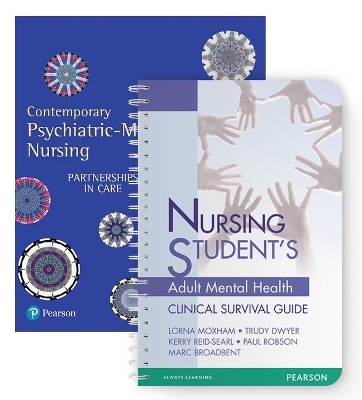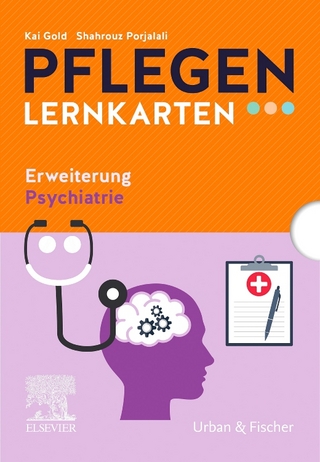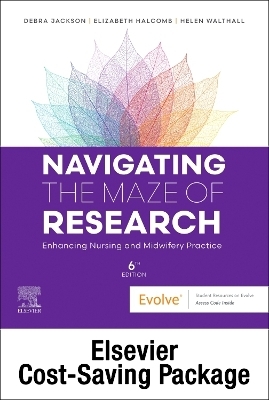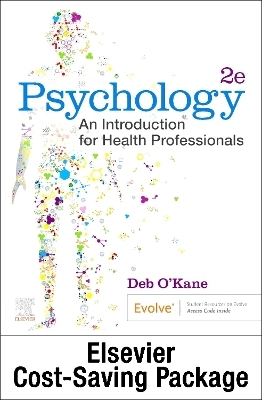
Contemporary Psychiatric-Mental Health Nursing
Pearson
978-1-4886-8738-9 (ISBN)
- Titel nicht im Sortiment
- Artikel merken
Contemporary Psychiatric Mental Health Nursing is a lived experience, contemporary, evidence-based, culturally competent, authoritative and comprehensive resource. It offers a fully integrated perspective which most importantly includes the voice of people with mental illness.
With a consumer voice was prominent in each chapter this text is designed to enhance students ability to become a therapeutic, nonjudgmental, competent and confident psychiatric/mental health nurse.
It is mapped to the NMBA Registered Nurse Standards for Practice.
The Nursing Student's Adult Mental Health Clinical Survival Guide includes content aimed at helping students or new graduates find relevant information that assists their everyday practice in an adult setting quickly and with accuracy. This pocket-sized guide contains common Australian terminology, standard abbreviations, alcohol consumption guidelines and recovery principles, among many other essential elements of mental health nursing.
The information within the resource is not meant to be comprehensive. It is not a mental health text, but like the other books in the Survival Guide series, it provides information which serves as a quick reference for students and new graduates in clinical practice.
Samples Contemporary Psychiatric-Mental Health Nursing: Partnerships in Care
Download the detailed table of contents >
Preview a sample chapter >
Professor Trudy Dwyer has extensive learning and teaching expertise in both undergraduate and postgraduate research higher-degree programs. She has authored numerous books, book chapters and peer-reviewed journal articles and is a principal author of the Student Survival Guide series published by Pearson Australia. Her program of research is Quality and Safety in Healthcare, with a focus on recognition and responding to clinical deterioration, nurse-led models of care, simulation and knowledge translation. Kerry Reid-Searl is currently a Professor of Innovation and Simulation in the School of Nursing and Midwifery at the University of Tasmania. Kerry has been involved in nursing education for more than 30 years and over this time she has remained clinically current. Her research interests include patient safety, simulation, paediatrics and wound care. Paul Robson is a Consultation Liaison Mental Health Nurse at CQMental Health Service. Dr Marc Broadbent has a clinical background in critical care and emergency nursing and his main area of expertise is in trauma and emergency nursing with a specialised knowledge of emergency triage. Marc has worked as a Clinical Nurse Specialist, Nurse Educator and Nurse Manager in emergency departments within Australia and overseas. Mike Hazelton is Professor of Mental Health Nursing in the School of Nursing and Midwifery, the University of Newcastle, Australia. He is a former Head of Nursing and Midwifery at Newcastle, and also Curtin University and the University of Tasmania, and has been involved in nurse education generally and mental health nurse education specifically for over 30 years. Mike has published over 90 articles, abstracts, books and book chapters on mental health and mental health nursing, and has undertaken consultancies for various governments in Australia. Mike is a former editor of the International Journal of Mental Health Nursing, and a current member of the Editorial Advisory Board of the Australian and New Zealand Journal of Psychiatry. He has been awarded a number of awards for his research, and is a Life Member of the Australian College of Mental Health Nurses, the highest honour awarded by that professional organisation.
Contemporary Psychiatric-Mental Health Nursing
Chapter 1 People with lived experience and carers
Chapter 2 The therapeutic relationship
Chapter 3 Psychiatric/mental health nurses: who are they and what do they do?
Chapter 4 Self-awareness and the mental health nurse
Chapter 5 Theories for interdisciplinary care in mental health
Chapter 6 The biological basis of behavioural and mental disorders
Chapter 7 The science, practice and experience of psychopharmacology
Chapter 8 Stress, anxiety and anxiety disorders
Chapter 9 Therapeutic communication
Chapter 10 Psychiatric-mental health assessment
Chapter 11 Ethics, legal issues and the rights of people with a mental illness
Chapter 12 Cognitive disorders
Chapter 13 Substance use disorders
Chapter 14 Working in collaboration with people living with schizophrenia and other psychotic disorders
Chapter 15 Affective disorders
Chapter 16 Dissociative, somatic symptom and factitious disorders
Chapter 17 Eating disorders
Chapter 18 Personality disorders
Chapter 19 People at risk for suicide and self-harming behaviour
Chapter 20 Family violence
Chapter 21 The mental health of younger people
Chapter 22 Older people
Chapter 23 Therapeutic groups
Chapter 24 Family-focused interventions
Chapter 25 Cognitive and behavioural interventions
Chapter 26 Pathways of care
Download the detailed table of contents >
Nursing Student's Adult Mental Health Clinical Survival Guide
INTRODUCTION
RECOVERY AND RECOVERY-ORIENTED PRACTICE
Recovery 'Star'
MENTAL STATE EXAMINATION (MSE)
Key areas of assessment
SELF-HARM RISK ASSESSMENT
Assessing for potential risk of suicide
MENTAL ILLNESS: AN OVERVIEW
Definitions
SIGNS OF MENTAL ILLNESS
Symptoms associated with depression, mania and anxiety
Possible signs of mental health problems
MEDICATIONS USED IN MENTAL HEALTH
NEUROLEPTIC MALIGNANT SYNDROME (NMS)
Medications associated with NMS
Extra pyramidal side effects (EPSE)
ASSESSING SPECIFIC MENTAL HEALTH PROBLEMS
Pre- and postnatal depression
Geriatric depression
Assessing risk of self-harm
TOPICS FOR PSYCHO-EDUCATION
EMERGENCY DEPARTMENT (ED) MENTAL HEALTH
TRIAGE
Treatment acuity
MEDICATION SAFETY
Written medication orders
Telephone medication orders
Medication dosages
Medication routes
Metric equivalents
DRUG SCHEDULING SYSTEM
INTOXICATION
Standard drinks
Features of intoxication
CLINICAL HANDOVER TIPS
ISBAR
CLINICAL DOCUMENTATION
The SOAP approach
Example of an inpatient clinical audit tool
QUICK RELAXATION TECHNIQUES
COMMON ABBREVIATIONS
USEFUL RESOURCES
| Erscheint lt. Verlag | 20.1.2018 |
|---|---|
| Sprache | englisch |
| Maße | 221 x 276 mm |
| Gewicht | 1784 g |
| Themenwelt | Pflege ► Fachpflege ► Neurologie / Psychiatrie |
| ISBN-10 | 1-4886-8738-2 / 1488687382 |
| ISBN-13 | 978-1-4886-8738-9 / 9781488687389 |
| Zustand | Neuware |
| Haben Sie eine Frage zum Produkt? |
aus dem Bereich


